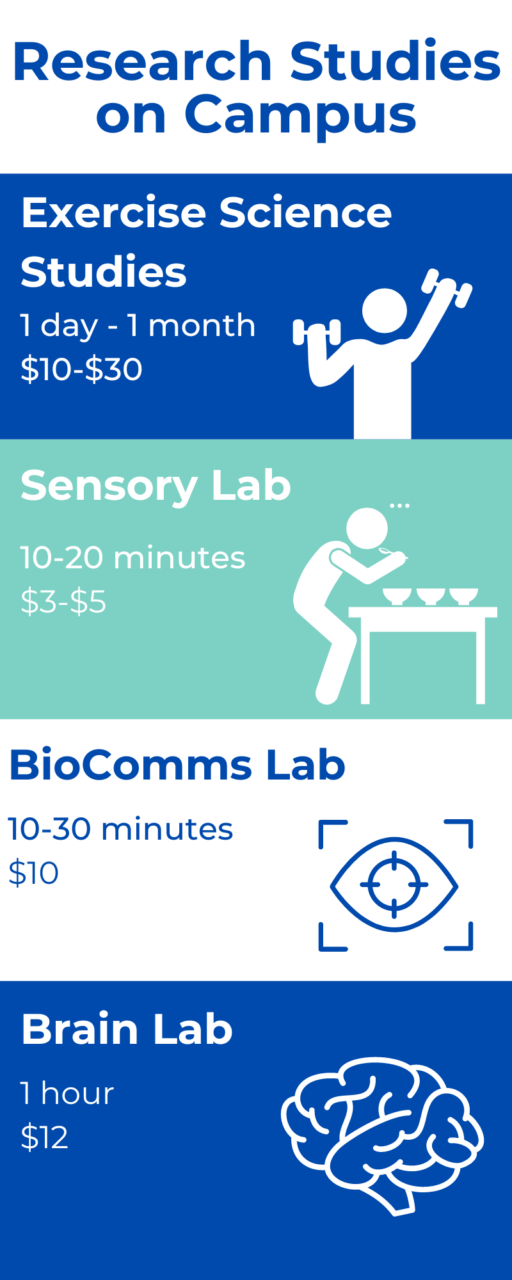
As the Christmas season approaches and students look for ways to save money, BYU research studies provide a quick way to make some cash without having to leave campus.

Exercise sciences studies
The exercise sciences department conducts research studies for which they need human subjects. Students can sign up to be notified about these studies on their website.
“We usually have about 10-20 studies going on at a time,” Cami Cornia, business manager for the exercise science department, said. “Research participants are usually compensated $10-$30 dollars, but some of the studies do pay more though they generally require a lot more time from participants.”
Sensory Lab
The BYU Food Science Sensory Laboratory conducts taste panels in which participants are paid to taste food samples and answer questions.
Students can sign up to be part of the panel and receive an email when there is an upcoming taste panel.
“Not only do panelists get to participate in research, but they also get paid and receive a treat,” Amanda Rees, the Sensory Lab director, said. “It typically takes 10-20 minutes to participate in a sensory panel and the average reward ranges from $3-$5.”
Rees explained that the lab conducts 3-10 panels a month and recruits 50-100 panelists per panel.
BioComms Lab
The BioComms Lab in the communications department conducts research studies in which students can participate and receive $10 in compensation.
“The benefits of participating in the BioComms Lab are getting paid for a pretty minimal amount of effort as well as getting to experience new things,” Michael Luce, a research assistant at the BioComms Lab said.
Luce shared that the studies can take anywhere from 10 minutes to 30 minutes, but rarely ever exceed that time.
“I would definitely say the time is worth it,” Luce said. “The thing that will take you the longest is just finding the Brimhall building.”
College of Humanities
Professor Jeffrey Green of the College of Humanities Brain Lab conducts research studies where students can participate and be compensated. Green is currently running a study that needs native speakers of Spanish or Mandarin who learned English as a second language. The study takes about an hour and students will be compensated $12.




